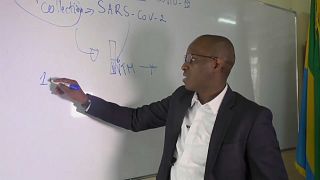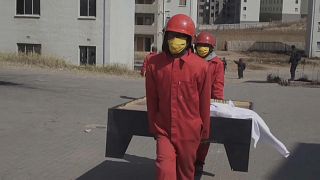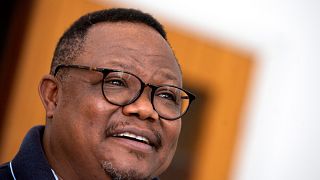Angola
Jailtime for the Former President's Son
Billionaire behind bars, Jose Filomeno dos Santos, son of the former president who ruled Angola for 38 years, was sentenced to five years in prison by the nation’s Supreme Court in Luanda on Friday for a multi-billion dollar embezzlement scheme attempting to transfer to $1.5 billion into a private Swiss bank account from the sovereign wealth fund - which he oversaw for 5 years from 2013.
Three of his co-defendants — including the former governor of the national bank of Angola (BNA) Valter Filipe da Silva, received sentences of 3-6 years for similar crimes of fraud, embezzlement and influence peddling.
Political "Witchhunt"?
Zenu, as he is known, is the first to be persecuted from this presidential family as part of an anti-graft campaign led by current President João Lourenço - who came to power in 2017. A second family member might follow suit as in February, Angolan investigators froze the assets of Zenu's billionaire half-sister Isabel dos Santos as she is being probed for a lengthy list of crimes — namely mismanagement, embezzlement and money laundering during her stewardship of the state-run oil giant Sonangol.
It appears that Lourenço has mainly targeted the relatives of his predecessor Jose Eduardo dos Santos, who appointed members of his family to key positions in the country during his presidency. This, unfortunately, left a legacy of nepotism and poverty — with only a small elite, since then, having benefited from Angola's vast oil and mineral reserves.
The southwest African country has been slow to recover from a civil war which lasted from 1975 to 2002 civil war. A large part of the nation’s population live in poverty and have limited access to basic services.
Large pockets of the population live in poverty with limited access to basic services.












Go to video
DR Congo and M23 rebels to hold direct talks after months of fighting
Go to video
Cybercrime crackdown: 306 arrested in Africa-wide operation
02:32
Can the Doha meeting end war in Congo's east?
02:31
Angola urges ceasefire ahead of DRC-M23 peace talks
02:21
Mediator Angola, says DRC and M23 rebels to hold direct peace talks
02:13
Blatter and Platini back in Swiss court in new trial over FIFA fraud case